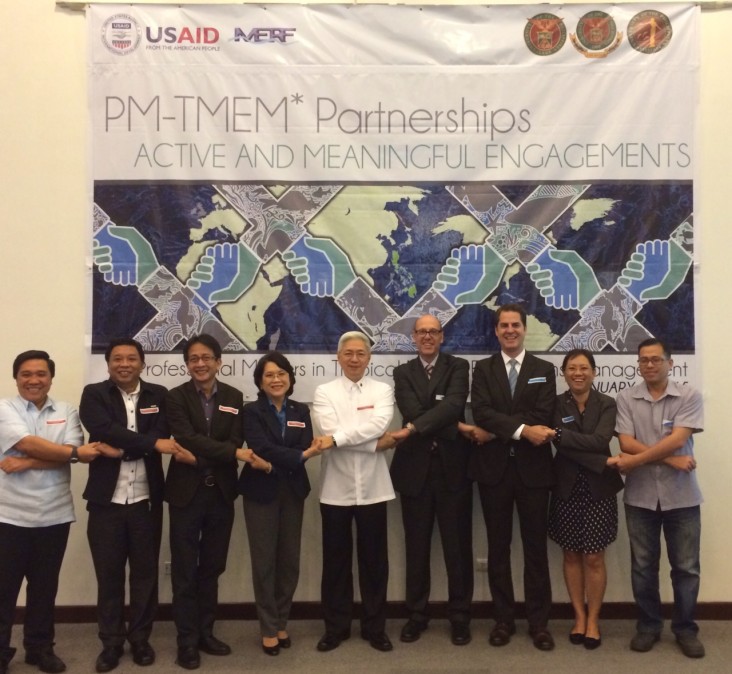
For Immediate Release
The University of the Philippines (UP) and the U.S. government, through the U.S. Embassy Manila’s United States Agency for International Development (USAID) today launched a new graduate program that will help protect the Philippines’ rich marine biodiversity.
USAID Deputy Mission Director Reed Aeschliman joined Dr. Alfredo E. Pascual, President of the University of the Philippines, to launch the Professional Masters in Tropical Marine Ecosystems Management.
The program is the first UP graduate program that will be offered by three UP constituents: Diliman, Los Banos and Visayas. It is a product of a grant awarded by USAID to the Marine Environment and Resources Foundation, a foundation based at the UP Marine Science Institute.
“The Philippines relies on marine resources for food, livelihoods, and tourism. However, the Philippines is also an area of significant threats, making it crucial to promote conservation and develop local expertise to enhance natural resource management,” Deputy Director Aeschliman said. “Strengthened natural resources and environmental management contributes to our shared goal of broad-based and resilient growth in the Philippines”
With marine protected areas as an initial area of specialization, the program aligns with the goals of the Coral Triangle Initiative (CTI) on conservation and food security. It will also provide opportunities to middle-management professionals in government, NGOs, and the private sector to enhance their management skills with a solid marine science foundation.
CTI is an agreement between the governments of countries belonging to the Coral Triangle region—Indonesia, Malaysia, Papua New Guinea, Philippines, the Solomon Islands and Timor-Leste—to protect the marine and coastal resources of the area which are under threat from unsustainable fishing practices and the effects of climate change.
“This master’s degree program is strategic as it gives international recognition to UP’s expertise in the field of marine science and the active role of its constituent units in realizing the goals and targets of the Coral Triangle Initiative. The participation of international lecturers and NGOs in the program likewise provides UP the opportunity to pursue more collaborative research with American experts,” UP President Pascual said.
The U.S. government, through USAID, has invested more than Php2 billion (US$ 46.5 million) over the last decade, to support marine biodiversity conservation in the Philippines. Successfully completed programs such as the Fisheries Improved for Sustainable Harvest and the Coral Triangle Support Partnership worked with the Philippines to promote appropriate management, good governance and community engagement in the coastal and marine sector. This new graduate program builds on the successes and lessons of these programs.
The program also aligns with the 2012 U.S.-Philippines Science and Technology (S&T) Agreement. At an October 2014 Joint Committee Meeting under the S&T Agreement, U.S. and Philippine counterparts identified a range of joint initiatives related to marine ecosystem and biodiversity research. The Joint Committee also agreed to cooperate in the areas of climate change and disaster resilience, health research, and science education.







Comment
Make a general inquiry or suggest an improvement.